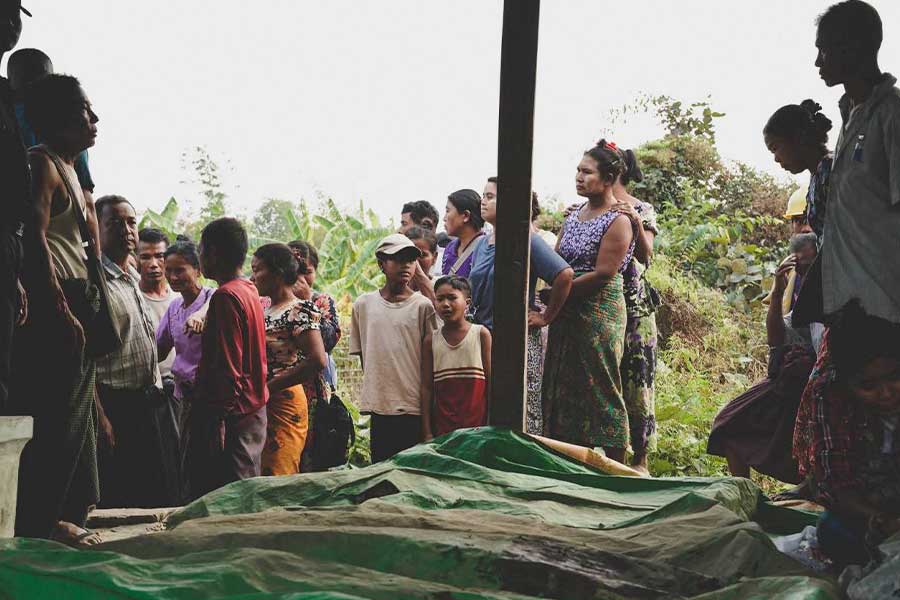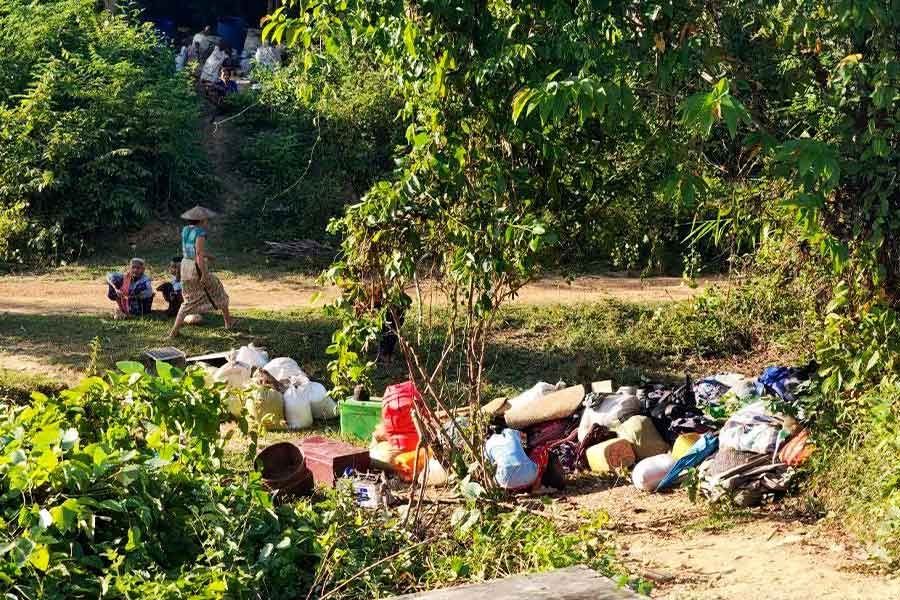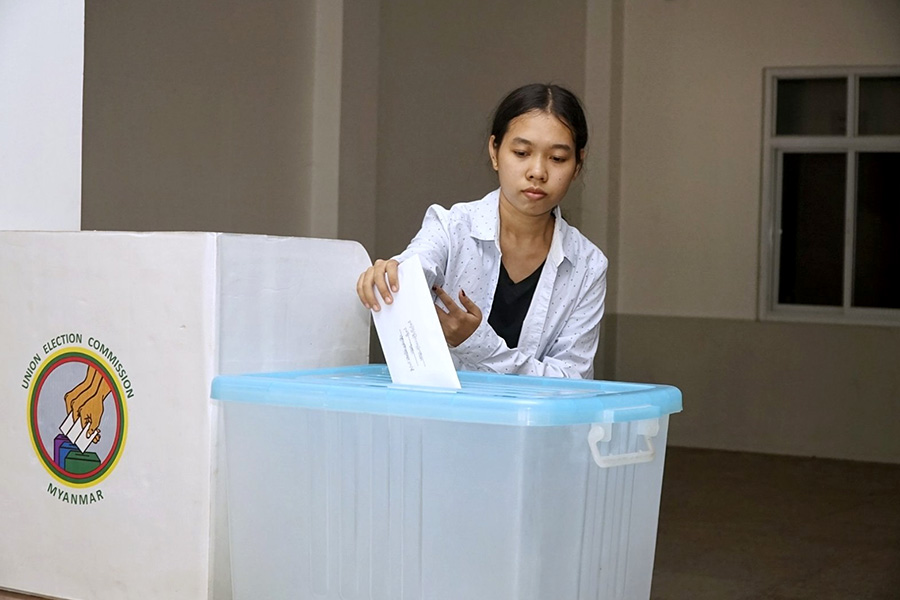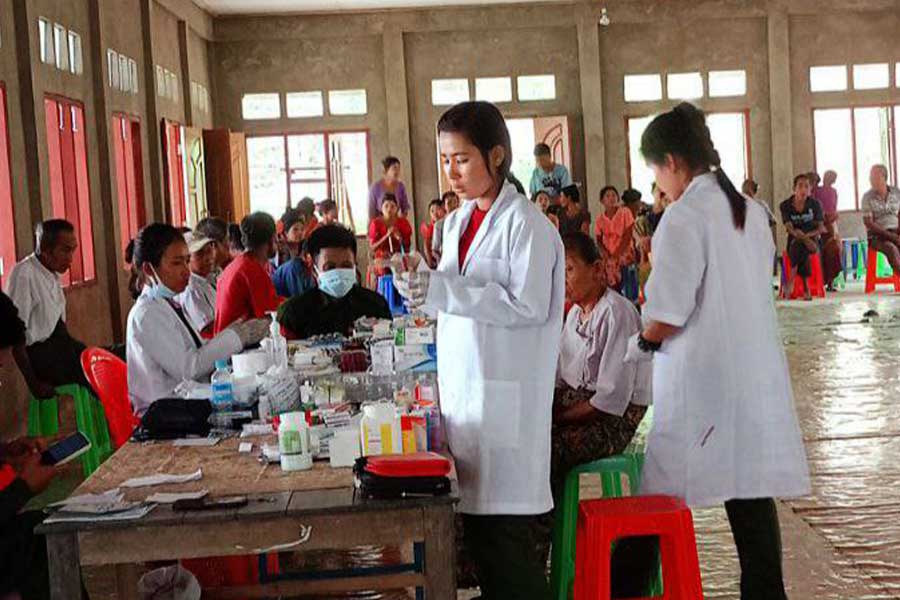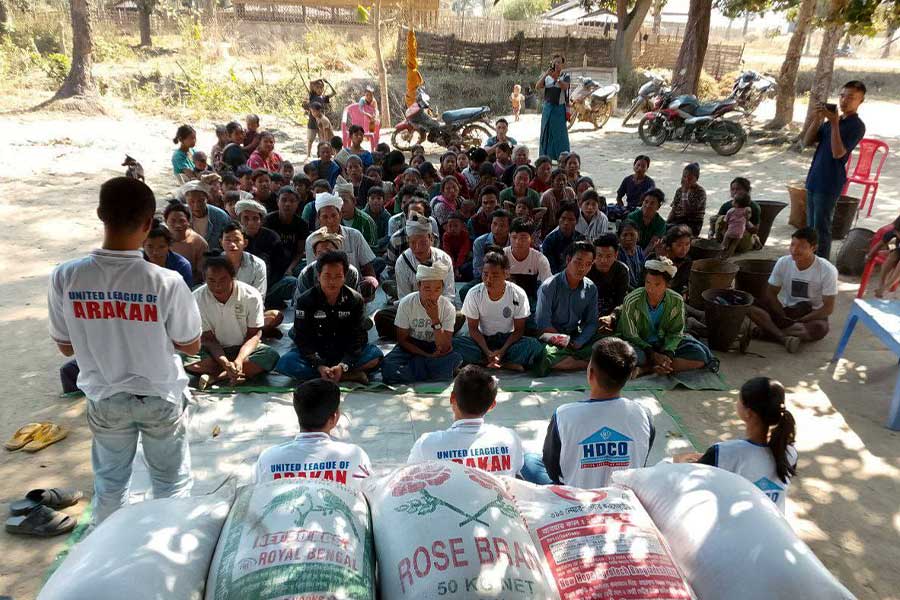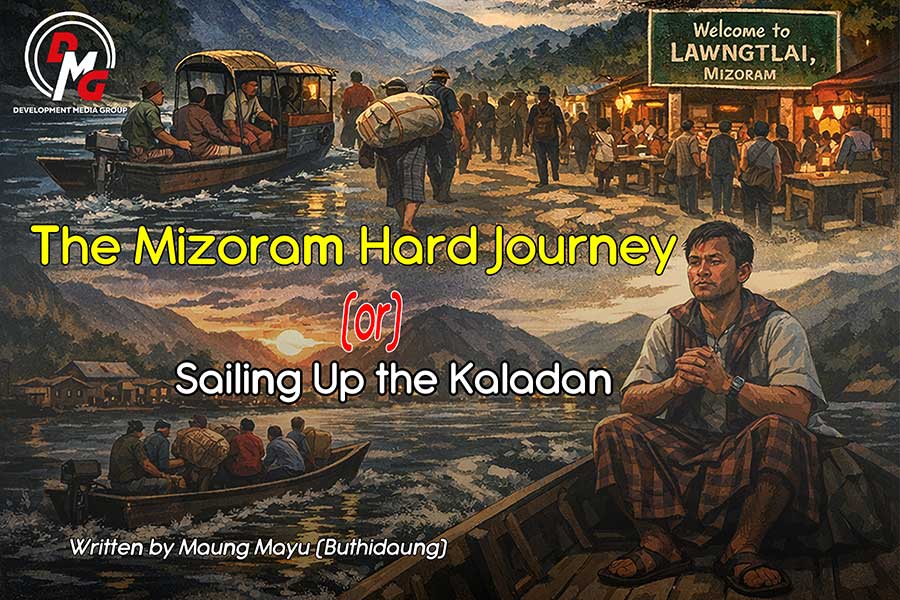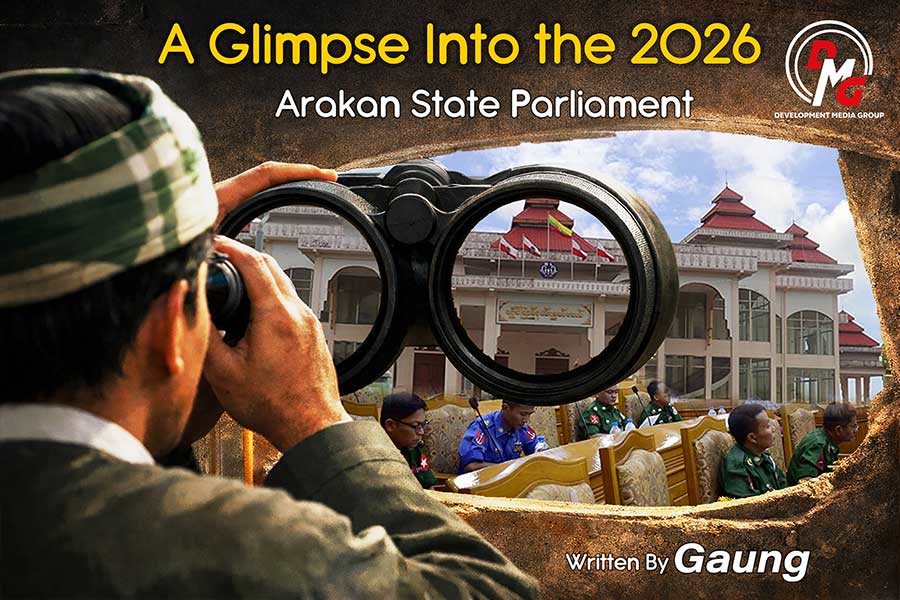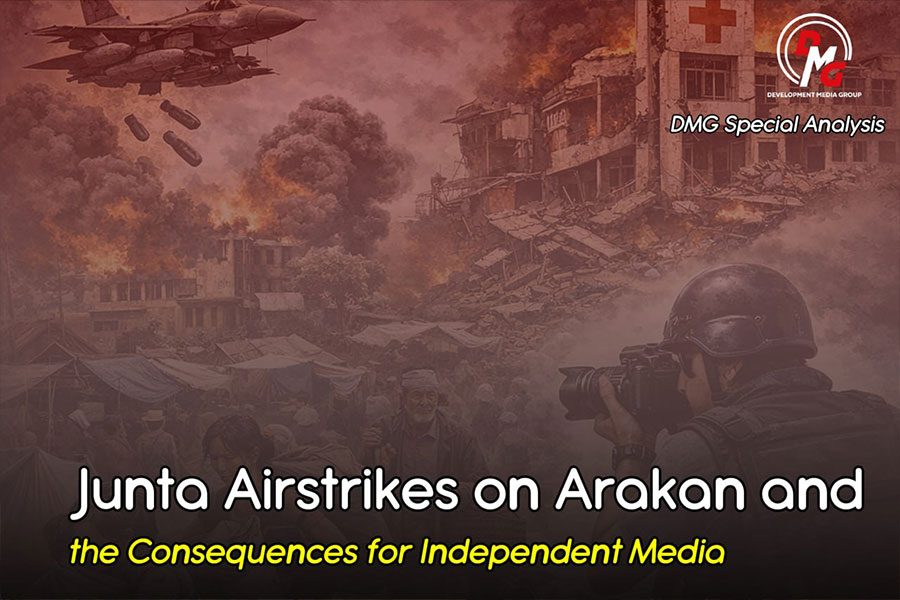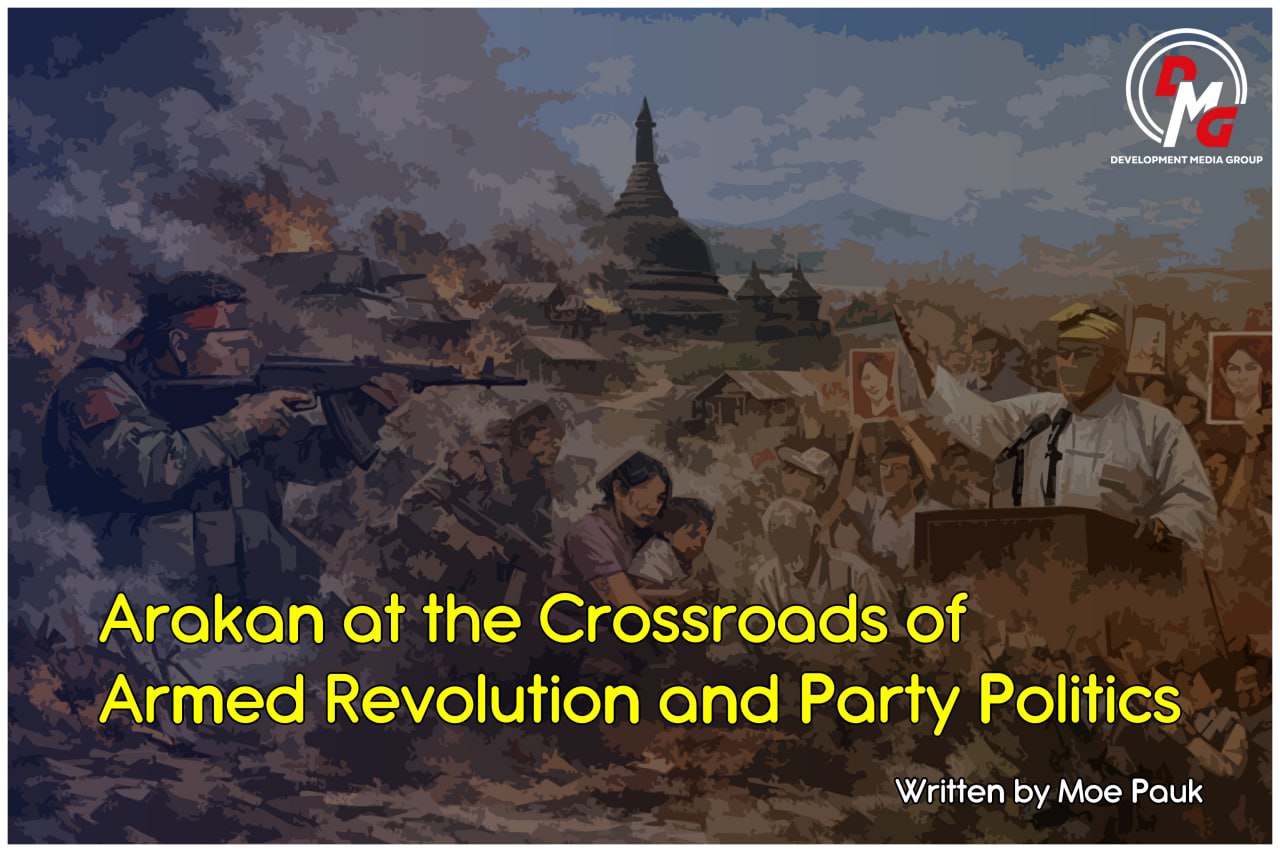- 15 mass casualty incidents from regime airstrikes reported in Arakan State since 2023
- Kyaukphyu IDPs forced to flee again amid junta airstrikes and artillery attacks
- New Diplomatic Movements Between Bangladesh’s New Government and the Arakan Public Administration
- Junta claims over 24 million ballots cast in 2025 poll, cites strong youth turnout
- ULA expands HIV prevention, healthcare services for sex workers in AA-held areas
Post-Coup Crises Exacerbate Struggles for Arakan State’s Disabled
Myanmar’s military government, which is a signatory to the United Nations Declaration of Human Rights and the Rights of Persons with Disabilities, has committed human rights violations against both ordinary people and the disabled.
04 Apr 2023
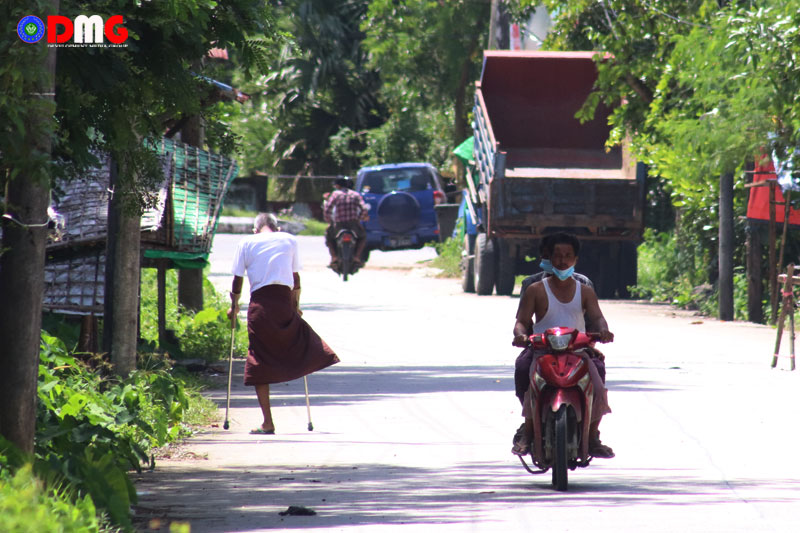
Written by Moe Pauk
According to population data from the 2019 intercensal survey, approximately six million of Myanmar’s 51 million people are disabled, or about 12 percent of the total population.
At more than 505,000 people, 17.3 percent of the population 5 years and older in Arakan State is considered to be disabled, a figure well over the national average — for one of the country’s poorest states/regions. Arakan State is the second poorest state in Myanmar, and remains largely undeveloped today. The state is losing human capital as many are leaving the state for better economic prospects overseas.
To make matters worse, Arakan State has experienced years of armed conflict, which has left many more people disabled. Things have become increasingly difficult for people with disabilities, said Ma Htwe May, general secretary of the Rakhine State Disabilities Organization.
“Even normal people face serious problems in conflict zones, so things are worse for persons with disabilities. Things are different for disabled people in poor states like Arakan State, compared with more developed places in other parts of the country. Many disabled people went hungry during the war and the Covid-19 pandemic,” said Ma Htwe May.
Human capital is the most valuable of all assets. Without it, a nation cannot grow and prosper. Around the world, every visionary leader attaches greater importance to human capital than natural resources in striving for national development.
Global Standards for Comparison
In developed countries, persons with disabilities have been making contributions to the development of their nations. In most countries around the world, persons with disabilities receive better assistance from their governments and civil society organisations (CSOs) than their counterparts in Myanmar do.
In Myanmar, 78 percent of disabled populations receive no assistance from either the government or CSOs, according to the 2019 intercensal survey. The Myanmar government provides little assistance and fails to take responsibility for people with disabilities, said Ma Htwe May.
“Children with disabilities can’t enrol at public schools. Some have the ability to learn despite their disabilities. But authorities do not accept that, and as a result, the disabled people are losing their capacity and our country is losing human resources,” said Ma Htwe May.
The United Nations adopted a World Programme of Action Concerning Disabled Persons in 1982 in an effort to better guarantee the rights of disabled persons, fight discrimination against them, and acknowledge their capabilities.
The annual observance of International Day Persons With Disabilities (December 3) was proclaimed at the 47th UN General Assembly in October 1992. The amended version of the UN Convention on the Rights of Persons with Disabilities was adopted on December 3, 2016, with many countries ratifying the convention.
Since the World Programme of Action Concerning Disabled Persons was introduced in 1982, many countries have actively worked for disability inclusion.
Myanmar observed International Day for Persons with Disabilities for the first time in 1994, and signed the UN Convention on the Rights of Persons with Disabilities in December 2010. It enacted the Rights of Persons with Disabilities Law in June 2015, and enacted accompanying rules in November 2017. The rules authorise the government to take the lead role in forming a disabilities organisation at the national level. In Arakan State, under the aegis of the Arakan State government, the Rakhine State Disabilities Organization was formed under the National League for Democracy (NLD) administration in 2019.
However, disability rights activists say that the Myanmar government, which has officially committed to protecting the rights of the disabled, is still weak in its follow-through.
Myanmar Government Falling Short
U Zaw Min Than, joint secretary of the nongovernmental Rakhine State Disabilities Organization, said that due to the current government’s indifference, people with disabilities in Arakan State are experiencing great difficulties.
“During the NLD government, there were some special funds and special schemes for the disabled. After the military coup, the Rights of Persons with Disabilities Law has become null and void, and the junta has not been able to provide any support, and it can be said that the military council has not taken any urgent action at all,” he explained.
According to disability rights activists, there are about 10 CSOs, in addition to INGOs and NGOs, working to help people with disabilities in Arakan State.
There are still many difficulties in supporting people with disabilities due to weak public participation, weak national policies and a lack of security in the country.
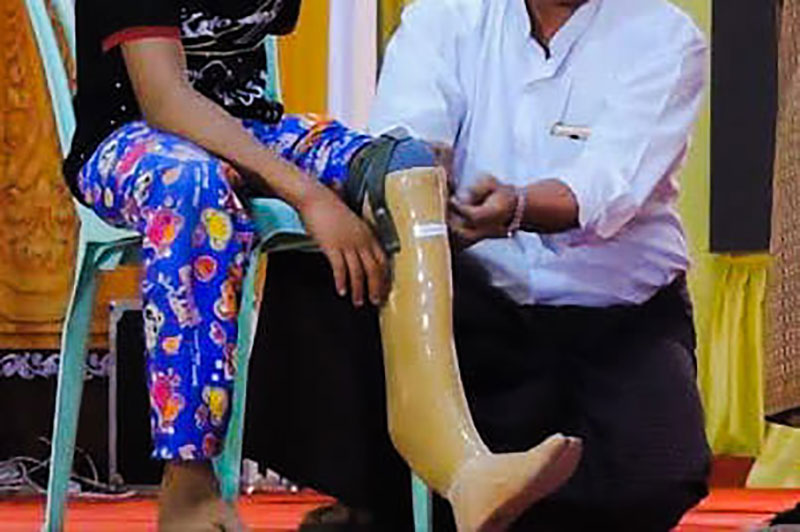
Organisations such as INGOs, NGOs and CSOs still have difficulties even making contact with disabled people in the border areas, said U Ye Kyaw Kyaw, field manager of the Community Empowerment and Resilience Association (CERA), which works on disability issues.
“INGOs, NGOs and CSOs face many obstacles in helping people with disabilities. There are obstacles where it is not easy to provide assistance due to the fact that the disabled themselves are weak and the support environment is weak. We provide knowledge and support materials to people with disabilities,” he added.
The 2019 intercensal survey categorises six types of disabilities: those who struggle with hearing, sight, walking or climbing steps, remembering/concentrating, self-care, and communication.
The United Nations Declaration of Human Rights and the Declaration on the Rights of Persons with Disabilities stipulate that all persons with disabilities, regardless of the form or cause of their disability, have the right to economic and social security, and to a decent standard of living.
In Myanmar, however, where full human rights remain elusive to the vast majority of the population, full rights for people with disabilities i only a dream, and the future of Arakan State’s disabled population will continue to be difficult.
The government and social organisations have reportedly established vocational courses for the disabled in Myanmar cities such as Mandalay, Naypyidaw and Yangon.
No such vocational training schools have been built yet in Arakan State, which has the largest number of disabled people as a percentage of its population.
“There are professions for the disabled in Yangon and other big cities, but there are no vocational schools in Arakan State,” said U Hla Myint, chairman of the Arakan State Disabilities Association. “Social organisations only sometimes teach people with disabilities. However, things that require written explanations, such as sewing skills, are convenient for people with disabilities only if they can read and write.”
But for many disabled people, access to basic education is unimaginable, let alone opportunities to attend vocational training.
War’s Toll
Myanmar’s military government, which is a signatory to the United Nations Declaration of Human Rights and the Rights of Persons with Disabilities, has committed human rights violations against both ordinary people and the disabled.
Due to the recent years of fighting between the Myanmar military and the Arakan Army (AA), people with disabilities in Arakan have faced an even steeper climb. The number of disabled has increased due to the fighting, and encounters with explosive remnants of war (ERWs) in Arakan State.
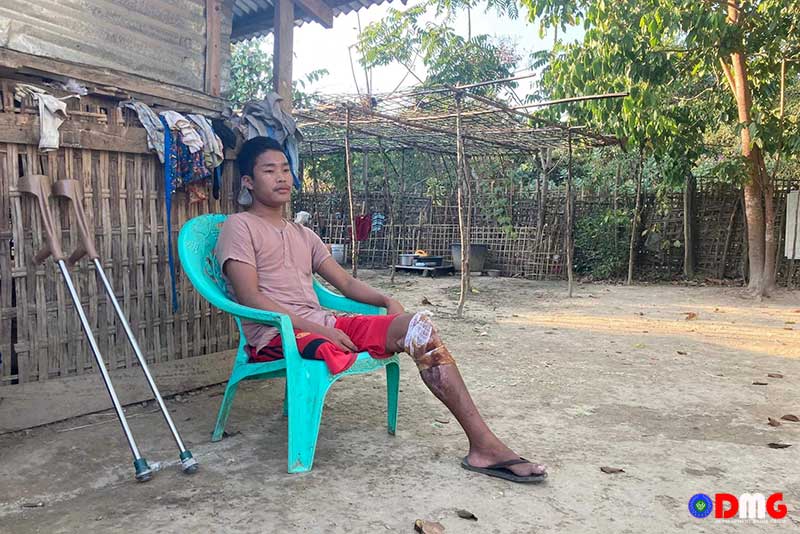
The blind and those without a lower limb or limbs (a common outcome of landmine encounters) have been forced to flee war alongside their seeing and two-legged civilian counterparts.
As an increasingly assertive movement for Arakanese autonomy continues to gain steam, it will be important that the people of Arakan State agree to bear responsibility for filling the existing gaps in meeting the needs of the disabled, who should be treated as equally worthy — as both human resources and human beings — as the most able-bodied among us.




